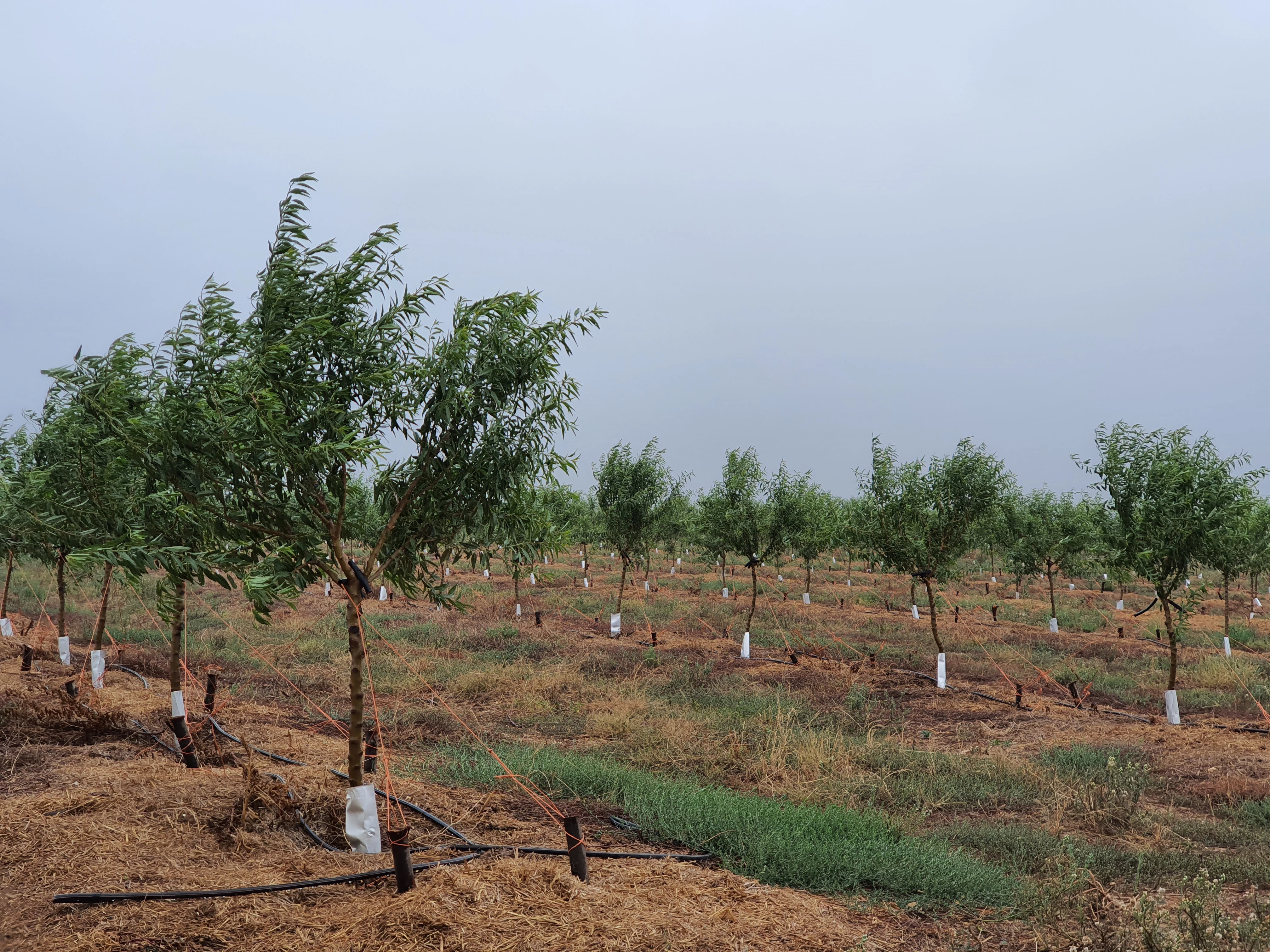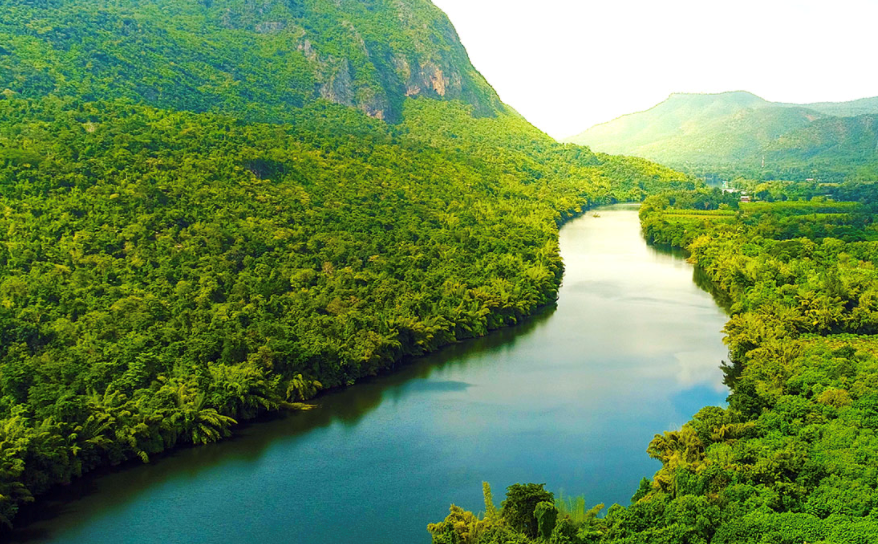The DFCD takes new step by investing in South African agricultural fund
Deze content is in het Engels. Wil je meer informatie? Neem dan contact op!
The Dutch Fund for Climate and Development (DFCD) has approved grant support for Restore Africa Fund (RAFF), which invests directly in conservation and regenerative agriculture in South Africa.
RAFF supports farmers in South Africa increase on-farm climate resilience. By implementing regenerative agriculture, which seeks to restore land and promote soil health, the company helps farmers sustainably maximise the potential of their businesses while also restoring degraded agricultural lands.
The project has been put forward by the World Wide Fund for Nature Netherlands (WWF-NL) which, together with SNV Netherlands Development Organisation, manages the DFCD’s Origination Facility to develop new projects. Following this approval WWF intends to sign a €340,000 grant funding agreement with the South African based RAFF.
Restoring soil health
Conventional farming makes extensive use of inputs, such as synthetic fertilisers and pesticides, to maximise crop yields with little regard for environmental integrity. This leads to soil degradation, inefficient use of water, and loss of productivity.
A recent United Nations report shows that 20% to 40% of global land is degrading to varying extents, putting especially vulnerable communities at risk of food insecurity and extreme weather events, like drought, floods, and wildfires. A report from the World Meteorological Organization (WMO), presented at COP26, shows that Africa is amongst the regions being hit hardest by climate change.
Regenerative agriculture fosters the soil health by not tilling it more than necessary and not stimulating overproduction by using pesticides and fertilisers. Using crop diversity makes sure food can be produced in way that works with nature, not against it. This system uses crop diversity, integrates a variety of livestock and encourages living plant roots throughout the year. All this leads to a healthier soil ecosystem. Healthy soil can store more carbon and retain more water, whereas degraded soil leaks both more easily.
Healthy soil also contains more biodiversity, from bacteria and fungi to tiny insects. This biodiversity supports food production and makes food production more resilient to shocks and stresses.

Shared ownership
To make the shift to regenerative agriculture, RAFF sets up a project company for each participating farmer to give them access to the capital required for the operationalisation. This dedicated company is co-owned by the farmer and RAFF. After an assessment to establish which regenerative agriculture practices can be implemented, the capital is deployed.
With this fund structure, RAFF tackles one of the main challenges in scaling regenerative farming: access to tailored and structured finance and technical support.
Two case studies
RAFF invested in two farms in South Africa in 2021 and 2022, which are used as case studies for future projects. Both are situated in the Western Cape. The first is an irrigated cornfield that is being converted into a regenerative almond orchard together with integrated livestock. The second project company entails a field of elevated solar panels being combined with planted pastures to be used for high-density grazing.
Scaling up
To scale up and help more farmers make a switch to more sustainable farming, RAFF has identified 25 projects across South Africa that are ready for investment and can be transformed right away. In addition, the fund has identified more than 20 projects currently undergoing further assessment.
Most of the grant money from the DFCD is aimed at strengthening the business case for the various identified farms through financial and agricultural due diligence. By building a stronger pipeline and improving its assessments, RAFF intends to improve its bankability and scale-up its programme from South Africa across the rest of the continent.
Key Impact Metrics
With the operationalisation of the projects that are ready for investment, the following impacts are expected:
- 755 individuals employed in farming operations implementing regenerative agriculture through RAFF's support.
- 27,490 hectares of farmland under sustainable management
- 27,157 tons of carbon dioxide equivalent avoided per year due through better farm and soil management
Keiron Brand, Regional Lead WWF DFCD Africa: 'Restore Africa Funds present DFCD with a fantastic opportunity to aggregate smaller deals into one dedicated vehicle. With their strong financial and technical expertise, we are excited to support this new vehicle that will drive the shift to regenerative agriculture, and we are excited to see where they can scale in the future.'
Nic van Schalkwyk, Executive Director RAFF: 'We are privileged and excited about partnering with the DFCD and its stakeholders on this critical intervention. We aim to drive the widespread adoption of regenerative agriculture across Southern Africa and further afield. The DFCD’s support provides RAFF with a revolutionary jump forward.'
Contact
For more information, Keiron Brand, Regional Lead WWF DFCD Africa at kbrand@wwf.nl.
In case you have any grievances in relation to this project of the DFCD’s Origination Facility, please contact us through our service desk at servicedesk@wwf.nl.
About RAFF
Restore Africa Fund (RAFF) is an impact fund that targets a broad range of sustainable development outcomes through natural restoration and regenerative agriculture. The primary objective of RAFF is to fund the conversion from conventional agriculture to regenerative agriculture in Southern Africa and further afield.
About DFCD
The Dutch Fund for Climate and Development (DFCD) is a climate fund, dedicated to supporting climate adaptation and mitigation projects which benefit vulnerable communities and landscapes. Initially funded by the Dutch government, it is powered by a consortium of four expert organisations: FMO (Dutch Entrepreneurial Development Bank), CFM (Climate Fund Managers), SNV, a global development partner, and WWF Netherlands.

